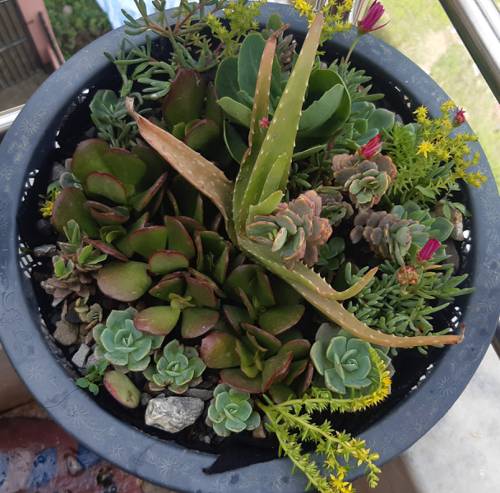
FAQ About Indoor Plant Sourcing and Ethical Practices

What does it mean to source indoor plants sustainably?
Sourcing indoor plants sustainably involves ensuring that the practices used in growing, transporting, and selling plants have minimal negative impacts on the environment. This includes considering factors like water conservation, the avoidance of harmful pesticides, and ensuring that plants are harvested in a way that does not deplete wild populations. Sustainable sourcing might also take into account the carbon footprint of transporting plants and efforts to reduce waste in packaging.

Why is ethical sourcing important for indoor plants?
Ethical sourcing of indoor plants is crucial because it addresses not only environmental impacts but also social issues. Ethical practices ensure that workers involved in the plant cultivation and distribution process are treated fairly and work under safe conditions. It also involves ensuring that plant trade is conducted legally and that harvesting methods do not threaten native ecosystems. By choosing ethically sourced plants, consumers can support businesses that prioritize human rights, biodiversity, and environmental sustainability.

How can I determine if a plant supplier follows ethical practices?
To determine if a plant supplier follows ethical practices, look for certifications from recognized bodies like Fair Trade, USDA Organic, or Rainforest Alliance. These certifications indicate that a company adheres to certain environmental and social standards. Additionally, research the supplier’s sourcing policies and ask about their practices in water usage, pesticide application, and worker conditions. Transparency in these areas is a good indicator of a supplier's commitment to ethical practices.

What are some eco-friendly ways to package plants?
Eco-friendly plant packaging options include using recycled or biodegradable materials such as cardboard, paper, or plant-based plastics. Some companies use compostable pots made from materials like coconut coir or rice hulls. Reducing packaging to only what's necessary is also a key practice. Additionally, using materials that can act as a starting point for plant nutrition, such as compostable packaging, adds value to sustainable practices.

Can you name some certifications that indicate ethically sourced plants?
Several certifications indicate that plants have been sourced ethically, including Fair Trade, Rainforest Alliance, and USDA Organic. Fair Trade focuses on fairness for workers and environmental sustainability; Rainforest Alliance ensures sustainable land management and wildlife conservation; and USDA Organic promotes organic agriculture practices without synthetic pesticides and fertilizers. Looking for these labels when purchasing plants can help ensure you are supporting ethical sources.

What environmental impacts should be considered when sourcing indoor plants?
When sourcing indoor plants, consider the environmental impacts of water usage, pesticide application, and the carbon footprint associated with transportation. Overwatering or inefficient water use can deplete local resources. Chemical pesticides can harm surrounding wildlife and ecosystems. Moreover, transporting plants over long distances contributes to greenhouse gas emissions. Opting for locally grown plants and those cultivated using sustainable methods can help mitigate these impacts.

How does plant transportation impact sustainability?
Plant transportation can impact sustainability through the carbon emissions generated by the vehicles used, often over long distances. These emissions contribute to climate change. Additionally, the packaging required to safely transport plants often results in waste. By choosing locally sourced plants or those from suppliers that employ carbon offsetting and use sustainable packaging, consumers can reduce the environmental footprint of their plant purchases.

What role do pesticides play in the ethical sourcing of plants?
The use of pesticides in plant cultivation can have significant environmental and health repercussions. Harmful chemicals not only affect the immediate ecosystem but can also contaminate water sources and harm non-target species, including pollinators such as bees. Ethically sourced plants are grown with minimal or no chemical pesticides, often using organic or integrated pest management strategies to protect the environment and consumer health.

Are there any organizations that promote ethical practices in plant cultivation?
Yes, several organizations promote ethical practices in plant cultivation. For example, Fair Trade International and the Rainforest Alliance work towards environmentally-friendly and socially responsible agriculture practices. These organizations provide certifications that help guide consumers towards products that adhere to high ethical standards. They focus on sustainability, fair labor practices, and preserving biodiversity.

How does the choice of plant species affect ethical sourcing?
The choice of plant species affects ethical sourcing primarily in terms of conservation status and suitability to regional climates. Sourcing plants that are endangered or are harvested unsustainably can lead to environmental harm. Choosing native or well-adapted species helps preserve local ecosystems and reduces the environmental burden of irrigation and pest control, making sourcing more ethical.

What is the impact of monoculture in plant nurseries on sustainability?
Monoculture in plant nurseries—growing a single plant species extensively—can lead to biodiversity loss and increased pest and disease problems, necessitating more chemical inputs. It also reduces soil health over time. Sustainable practices encourage polyculture, which involves growing a variety of species that can support each other and improve resilience, soil health, and reduce dependence on chemical inputs.

How can I find locally sourced indoor plants?
Locally sourced indoor plants can often be found at farmers' markets, local garden centers, or through online platforms dedicated to local farms and nurseries. By choosing locally grown plants, you help reduce the carbon footprint associated with transportation and support the local economy. Inquire about their growing practices to ensure sustainability and ethical considerations are part of their operations.

Are online plant retailers likely to be sustainable?
Online plant retailers can be sustainable if they are transparent about their sourcing and cultivation practices. Look for information about their environmental policies, certifications, and efforts to minimize carbon footprints, such as using eco-friendly packaging and supporting carbon offset initiatives. Reading customer reviews and third-party audit reports can also provide insight into their sustainability commitments.

What are some common misconceptions about ethical plant sourcing?
One common misconception is that ethical plant sourcing is prohibitively expensive, when in fact, many sustainably sourced plants can be competitively priced, especially when considering their long-term benefits. Another misconception is that all exotic plants are unsustainable; however, some are cultivated in ways that do not harm natural habitats. Lastly, people might assume ethical practices equate to limited variety; however, many nurseries offer diverse plant species that are sustainably produced.

What questions should I ask my plant supplier about sustainability?
When talking to a plant supplier, consider asking about their water and pesticide usage, the origins of their plant stock, and how they minimize transport impact. Inquire about any sustainability certifications like Fair Trade or Rainforest Alliance, and whether they use eco-friendly packaging. A reputable supplier should be transparent about their practices and happy to provide this information.

How does climate change influence indoor plant ethical sourcing?
Climate change influences indoor plant sourcing through its impact on growing conditions, water availability, and pests and diseases. Ethical sourcing practices often involve climate-adaptive strategies such as selecting drought-resistant species and implementing water-saving irrigation. Additionally, it encourages reduced carbon emissions in plant production and shipment processes, supporting broader climate change mitigation efforts.

What is the significance of plant provenance in ethical sourcing?
Plant provenance refers to the origin of a plant and its journey through the production and supply chain. In ethical sourcing, understanding provenance is crucial as it reveals the environmental and social practices associated with the plants. Knowing where and how a plant was grown helps ensure it was done sustainable and under fair labor conditions, supporting overall ethical consumption.

How can consumer demand influence ethical plant sourcing practices?
Consumer demand can significantly influence ethical plant sourcing practices. By opting for plants from ethical sources, consumers signal to producers and retailers that sustainability is a priority. This demand can drive industry-wide changes, increasing the availability of sustainably sourced products, incentivizing improvements in labor conditions, and encouraging investment in sustainable agriculture practices.

What steps can I take to make my current plant collection more sustainable?
To make your current plant collection more sustainable, consider repotting with peat-free compost, using recycled containers, and adopting organic pest management practices. Efficient watering practices and using homemade compost can reduce your environmental footprint. Also, propagate your plants instead of buying new ones, sharing or trading with other plant enthusiasts to promote sustainability.
